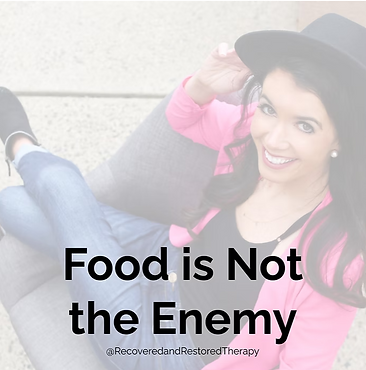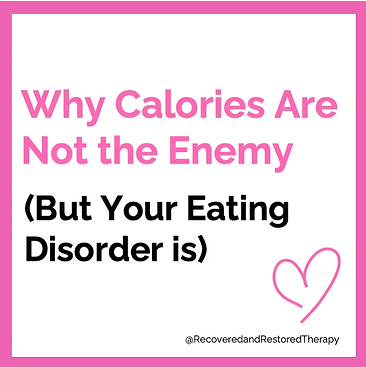Meal Coaching
for those struggling with eating disorders
Meal coaching is a powerful tool for anyone navigating eating disorder recovery. Mealtime can be one of the most triggering and emotional parts of the day - but you don’t have to go through it alone. Girl, we’ve got your back!
At Recovered & Restored, meal coaching sessions are 40-45 minutes long and are designed to provide compassionate, real-time support during meals. You can do meal coaching with any of our experienced team members. Whether you're eating with your coach on screen or processing your emotions around eating, these sessions create a safe space to build resilience. Meal coaching helps you sit with fullness, work through food-related anxiety, and gently challenge the thoughts and behaviors that come up during eating.
If you're a loved one supporting someone in eating disorder recovery, meal coaching can also help you develop the tools to support them better. You'll learn how to offer encouragement, use supportive language, and understand nutritional needs from a trauma-informed, non-diet perspective.
Looking for meal coaching near me or online support? We offer virtual meal coaching sessions to clients across Pennsylvania, New Jersey, Maryland, Delaware, Florida, Connecticut, Vermont, and South Carolina. Let us walk alongside you on your healing journey

Blogs that might help...
Almost every single one of my clients tells me that their long-term goal is to have a better relationship with food. Sadly, the world we live in is saturated by diet culture, and we are preached messages that often hinder us from fully restoring our view of food and eating. This has led us away from what I call “viewing food from a nutritional lens,” or examining what food is or isn’t doing in order to promote health in our individual bodies.
One of the principles of intuitive eating is “feeling your fullness.” But it’s important to remember, we cannot honor our fullness until we honor our hunger. This means responding to your different types of hunger (physical, taste, emotional, practical), choosing to eat foods that make you feel good + honor what you are craving, and creating meals that include components that are SATISFYING (ie a plate of raw veggies will leave you feeling physically full but NOT satisfied). A registered dietitian can be a great resource to use in order to create meals that are satisfying. Continue Reading...
My goal for my clients who are pursuing recovery is to help them create an environment where their eating disorder cannot thrive. It’s hard to do the mental work of recovery with a malnourished brain, but if you or someone you care about has walked through recovery, you know that it’s not as simple as “just eat!” Your eating disorder will do everything it can to create an environment in which it can continue to control you and your thoughts around food. It’s hard to fight the lies your eating disorder throws at you if you don’t have truth to fight back with. So why do we need food? Why do calories matter? Continue Reading...



